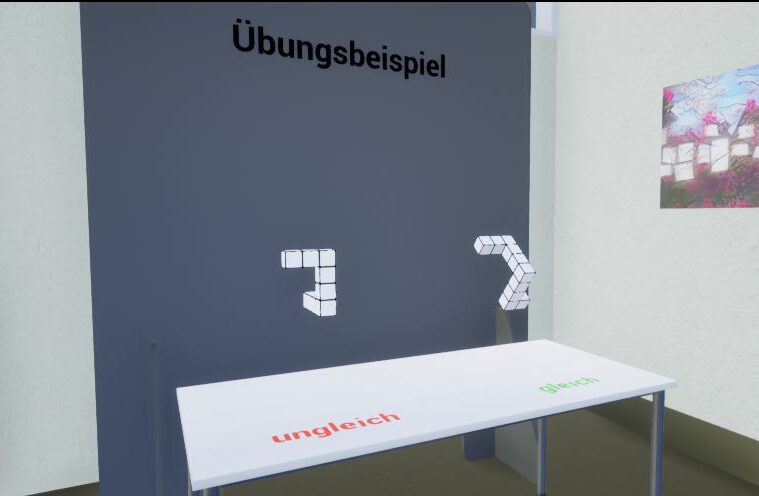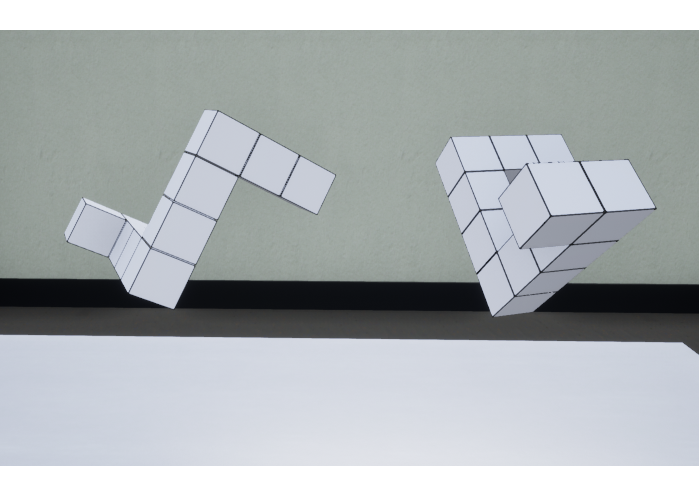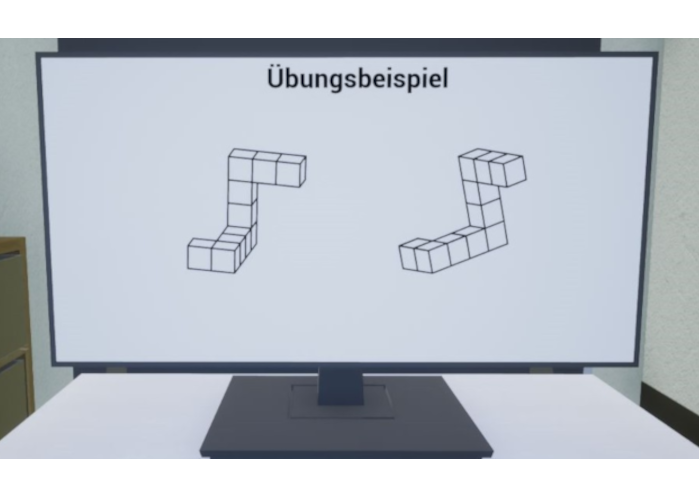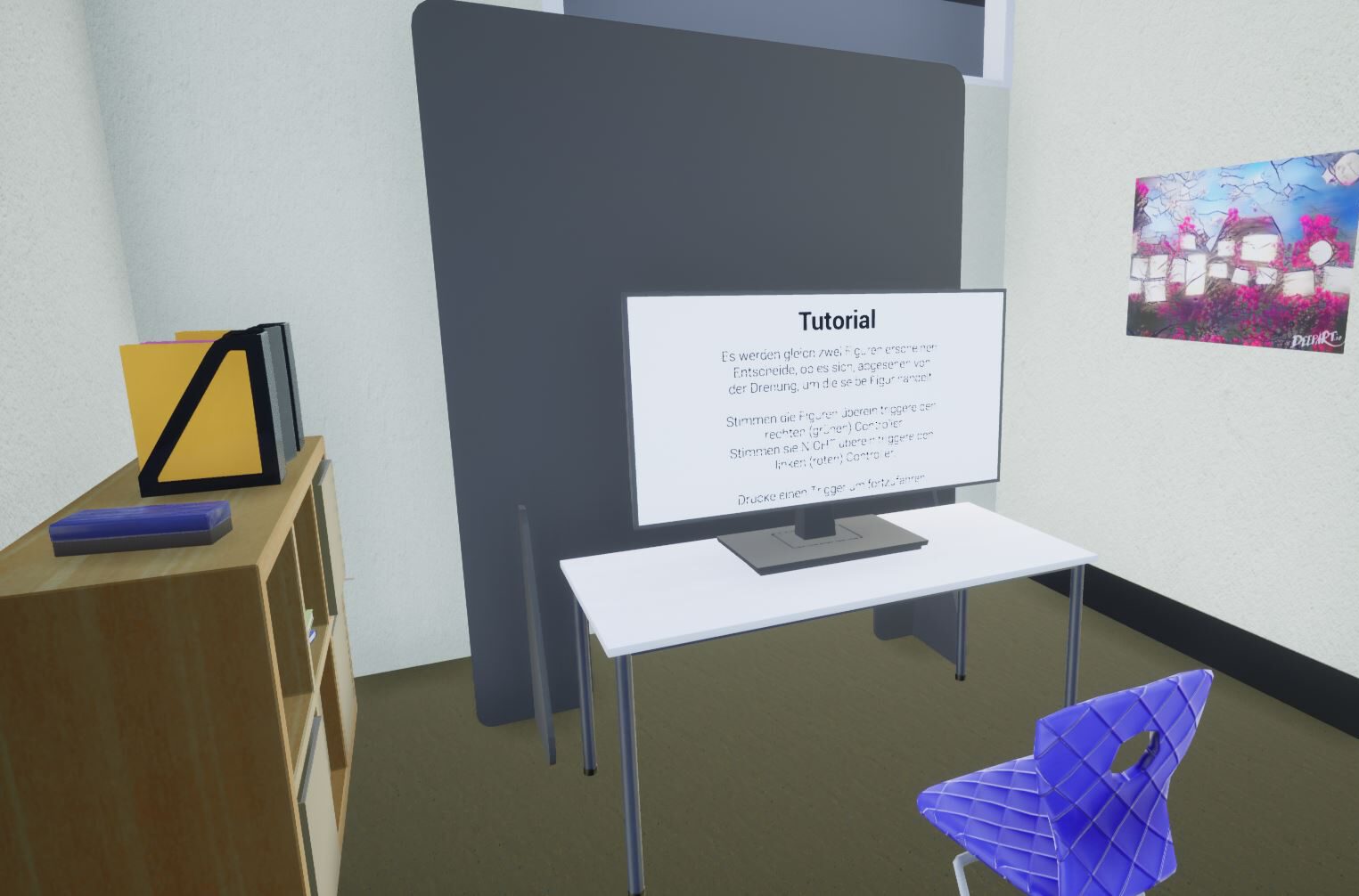Project description
In this project we want to investigate to which extend Immersive Virtual Reality (IVR) can be used as a tool for experiment testing. Starting with a fundamental task of experimental psychology – the Mental Rotation Task- we are interested in the influence of IVR on people’s performance and measuring cognitive processes. IVR gives us the opportunity to present actual real-time rendered,
But why virtual reality?
- Investigate spatial abilities in 3D space with real-time rendered, stereographic objects
- Provide an experimental framework for psychological research in IVR
- Convenient method to asses eye-tracking data
stereographic objects to test people’s mental rotation ability. Presenting tasks which reflect ability usage in everyday life situations could be beneficial for research on validity and individual differences. The convenient measuring of eye-tracking data in IVR also allows us to reason about individual gaze behavior, cognitive processes and cognitive strategies.
So what’s new?
The increasing performance of IVR and Eye-Tracking technology, increases the space of possibilities for measuring cognitive processes in a controlled but still realistic setting.
Get an impression




Interested in first findings?
We are currently running the experiment. For further information contact: philipp.stark[at]uni-tuebingen.de
First results are expected soon!
Project team:
Hector-Institute
Philipp Stark
Prof. Dr. Richard Göllner
Further contributors and collaborations
Milo Olbrich
Prof. Dr. Jens-Uwe Hahn
Prof. Dr. Markus Huff
